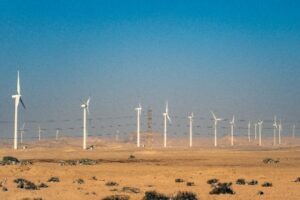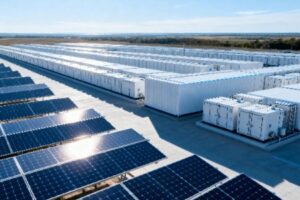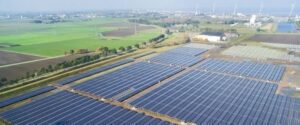The debate over rooftop solar — This Week in Cleantech


(Photo courtesy: Vivint Solar)
This Week in Cleantech is a new, weekly podcast covering the most impactful stories in cleantech and climate in 15 minutes or less. Produced by Renewable Energy World and Tigercomm, This Week in Cleantech will air every Friday in the Factor This! podcast feed wherever you get your podcasts.
This week’s episode features Syris Valentine, who reported in Grist on private capital that has followed the Inflation Reduction Act.
This week’s “Cleantecher of the Week” is Riley Neugebauer!
China installed more solar panels last year than the U.S. has in its history, its wholesale prices for panels sold were slashed nearly in half, and exports of fully assembled panels climbed 38%, while its exports of key components almost doubled. This year, they plan to do more by accelerating solar farm construction, as well as wind and hydroelectric construction.
In contrast, Europe and the U.S. face higher electricity prices and regulatory hurdles. The Inflation Reduction Act helped the U.S. compete with the Chinese solar market, but Europe has fallen behind.
Last year, the world added 20 GW of hydropower capacity, but the amount of electricity generated from hydropower fell due to drought across the globe. Climate-disrupting fossil fuels were used to fill the gap. In fact, 2023 saw energy-related carbon pollution grow by 1.1%, and hydropower’s shortfall accounted for 40% of that rise.
Global climate disruption will lead to more drought, less snowpack, and more variability in precipitation, which means we cannot rely on hydropower generation to remain consistent.
Hawaiian Electric plans to reduce incentives for households with home batteries when they deliver power to the grid during peak demand. The utility wants to integrate those batteries into a virtual power plant and subsidize household participation. But these new rates would pay battery owners less than the retail price of electricity.
Watch the full episode on YouTube
In places like California, adding solar panels to your roof means mostly competing with cheaper utility-scale solar that already dominates mid-day production. If rooftop solar doesn’t increase the overall supply of solar power in the regional grid, then it’s not an effective climate action.
On the other hand, if having distributed solar in the mix means we can build solar faster overall, that’s valuable for decarbonization. Rooftop solar reduces transmission/distribution losses, avoids network upgrades, and conserves land.
An analysis of the IRA shows that for every dollar the government invested in clean energy manufacturing, the private sector contributed $5.47, totaling about a quarter-trillion dollars in one year. Utility-scale solar and storage investment grew more than 50% and investment in the EV supply chain increased 115% since 2022.
However, this isn’t enough for the U.S. to reach our goals under the Paris Agreement – a 50% reduction by 2030.
Help make This Week in Cleantech the best it can be. Send feedback and story recommendations to rew@clarionevents.com. And don’t forget to leave a rating and review wherever you get your podcasts.
Join us every Friday for new episodes of This Week in Cleantech in the Factor This! podcast feed, and tune into new episodes of Factor This! every Monday.
This Week in Cleantech is hosted by Renewable Energy World senior content director John Engel and Tigercomm president Mike Casey. The show is produced by Brian Mendes with research support from Alex Petersen and Clare Quirin.




